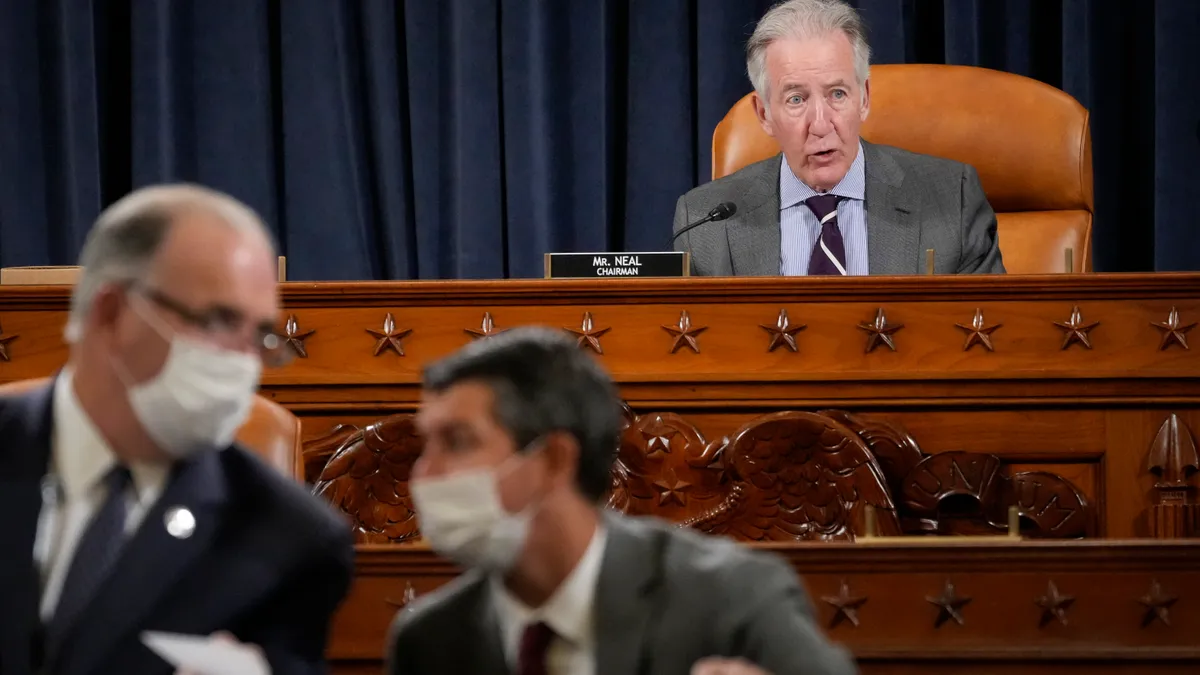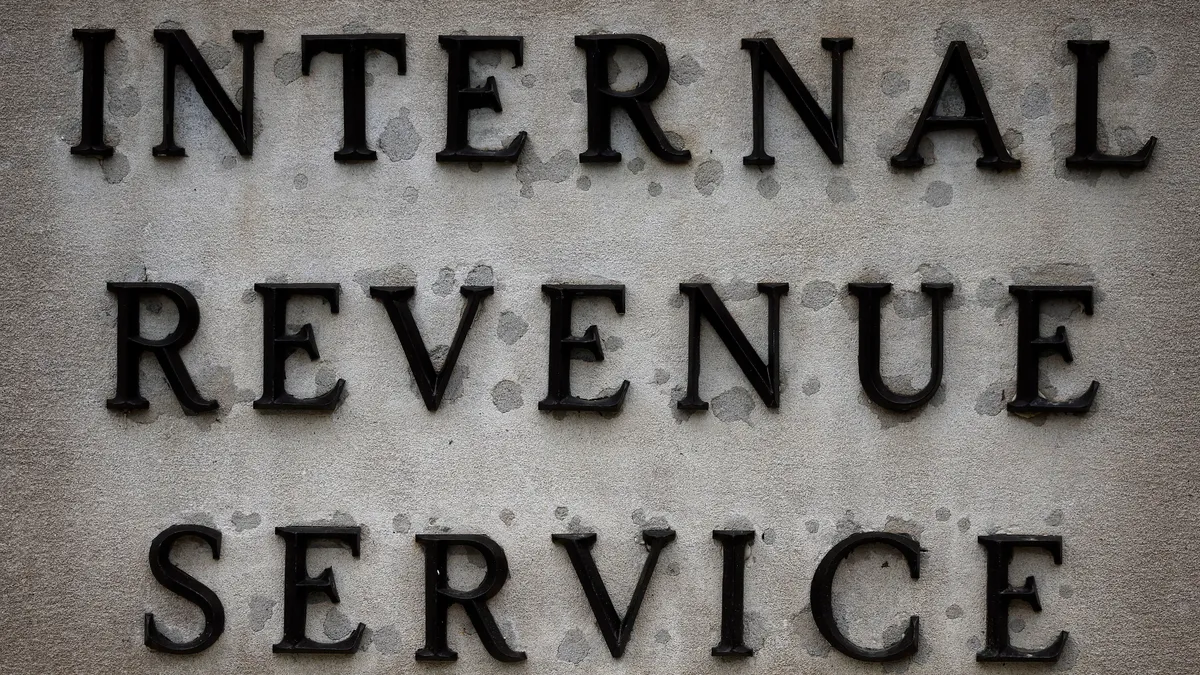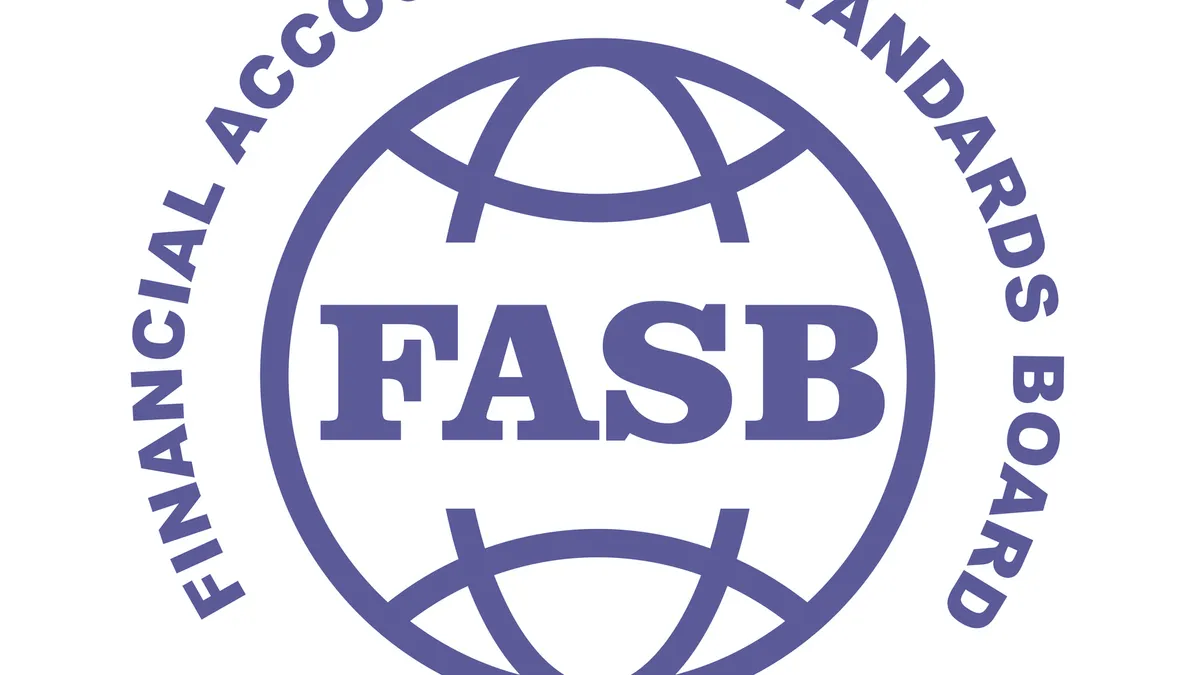A two-year increase in the number of years private equity firms must hold on to their investment for partners to get the 20% capital gains tax rate could have a small impact on the terms of capital going to operating companies.
The holding-period increase, from three to five years, is included in the tax bill passed by the House Ways & Means Committee last week, and could very well make it into any final legislation Congress passes to help fund the Biden administration's spending priorities.
“It’s not that crazy to require these shops to stay in the [portfolio] company for five years to keep building value, as opposed to getting out at three years,” Alan Levine, a partner with Morrison Cohen LLP, told CFO Dive. “It’s certainly a rational compromise that would probably put to bed for several years this whole [carried-interest tax] issue.”
The Ways & Means bill includes several changes to the corporate side of the tax code, including an increase to 26.5% from 21% in the tax rate, and provisions that would increase the levy on foreign income.
But the main focus of the bill is on the individual side, and although those changes don’t impact corporations directly, the change in the carried-interest holding period could affect investor decisions, which in turn could impact the terms at which equity investments are made in operating companies.
For the most part, any impact would likely be modest. “These [private equity] guys aren’t leaving the industry just because tax rates go up on them,” Levine said.
Tax consideration
Under the change, profits from general partners’ investment in an operating company would be taxed as ordinary income, with its top marginal rate at 37%, if they hold on to the investment for fewer than five years, up from three years today. If they meet the five-year holding period, they can get the 20% capital gains rate on their carried interest.
In practice, it’s rare for a PE firm to hold on to an operating company for just three years. “They need to revamp operations, build rollups, do other acquisitions,” Levine said.
But at five years, there could be an impact. “You may actually have PE shops holding on to it for an extra six months or so to get that capital gains treatment,” he said. “Obviously, all of these professionals have fiduciary duty to their investors, so they can’t sit there and say, ‘Okay, we’ll just wait six months until we get a better tax rate.’ I think if the opportunity is right, they really do have to sell. Maybe they don’t put it on the market right away or things like that. There are ways of addressing that particular issue, but nobody can just say, all other things being equal, we’re going to hold on to it for six more months just because we want a better tax rate. I think if the investment thesis works, I don’t think you’re going to have a PE shop balk at investing in the portfolio companies.”
More likely, the PE firm will negotiate different terms with its investment partners, which doesn’t impact the operating company.
“If they were expecting maybe a 2x return … or a 2.5x return or a 3x return for their investors, now they may want to say, ‘Okay, well, we’re adjusting our target. If it’s a four-year hold or something less than five years, maybe … we want 2.25x return to a 3.25x return so that we end up ourselves at the same spot if we got 2x or 3x.’”
There is one type of investment that could be impacted, though. “If the PE shop is looking for a relatively quick flip on a portfolio, it will affect them,” he said.
In these cases, the PE firm might opt not to invest, or, if it does, it would have to change its business strategy to one that focuses on building longer-term value.
Incentive pool
There is one other matter that could affect the portfolio company’s management team. The impact doesn't stem from any specific provision but rather as a side impact of the PE firm’s investment calculations under the new limitations — the size of the stock option pool that goes to the portfolio company’s management team.
As deal size gets bigger, it’s possible the pool set-aside for the management team as a performance incentive could shrink.
“What you may see is the PE shops starting to shrink pool size for the portfolio company management team, because the more dollars that get … shared with senior leaders, less flows upstairs,” Levine said. “If you’re paying tax, you thought you were going to be getting x when you had a 10% or 15% pool downstairs. If that pool is now 14% or 9%, depending on the range, more of it flows upstairs.”
That would mean less for the portfolio company’s C-suite. “It might be that we start to see some smaller pools to cover off this issue,” he says.
Residual impact
A few other provisions on the individual side of the code could have minor residual impact on PE firms’ investment calculations.
One is a change to Section 1202 of the code. Investors in early-stage startups would no longer get a 100% tax exclusion on their gain if they meet the code’s five-year holding threshold; instead, the exclusion would drop to 50%, which would make the investments less attractive.
“Of course, you’re still going to invest” if you’re a venture firm, Levine says. “Unless we get to a 100% tax rate, people are still going to invest … because you’re still taking home more than you’re paying. But that’s another thing that’s affecting the investment community.”
There are other changes that impact the investor side of the equation, but none of them would necessarily trickle down to operating companies. For example, one change would impact how the five-year holding requirement affects partners in the PE firm based on their tenure in the firm.
The change would require partners to have personally been involved in the investment for all of the five years. That means a partner who joined the firm two or three years after the initial investment wouldn’t meet the holding period if the firm sells at the five-year mark; only the original partners would. That’s different from what’s required today. As long as the firm meets the holding period, all of the partners do, no matter how long they’ve been partners with the firm.
That provision could see some push back. “That’s a really big change with really inadvertent consequences,” Levine said.






















